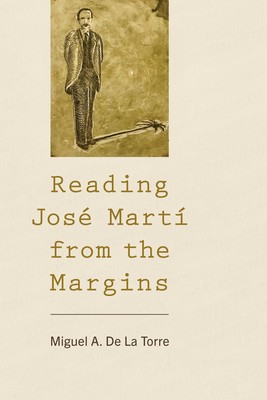
- We will send in 10–14 business days.
- Author: Miguel de la Torre
- Publisher: Rowman & Littlefield Publishers
- ISBN-10: 1538190672
- ISBN-13: 9781538190678
- Format: 15.2 x 22.9 x 1.6 cm, hardcover
- Language: English
- SAVE -10% with code: EXTRA
Reviews
Description
Reading José Martàfrom the Margins explores the construction of Cuban homophobia, racism, sexism, sinophobia and ethnic discrimination which continues unabetted today on both sides of the Florida Straits. The apotheosis of Martàand the falsification of his thoughts have made it difficult to provide a critical assessment of his contributions to the cause of political and social liberation. In his writings and in his declaration (Montecristo Manifesto), he is among the first Latin Americanists to envision the future of Cuba and the rest of Latin America with the full and equal inclusion of Indians and Blacks. However, he also unwillingly created the foundation for a paternalistic, colorblind social order which contributed to the marginalization of those who fell short of the cis-gendered male Eurocuban ideal. Relying primarily on MartÃÂ's own writings, some of which has yet to be translated into English, Miguel De La Torre provides a critical assessment of Martàand shows how some of his work contributes to the construction of intra-Cuban oppression.
EXTRA 10 % discount with code: EXTRA
The promotion ends in 18d.02:50:07
The discount code is valid when purchasing from 10 €. Discounts do not stack.
- Author: Miguel de la Torre
- Publisher: Rowman & Littlefield Publishers
- ISBN-10: 1538190672
- ISBN-13: 9781538190678
- Format: 15.2 x 22.9 x 1.6 cm, hardcover
- Language: English English
Reading José Martàfrom the Margins explores the construction of Cuban homophobia, racism, sexism, sinophobia and ethnic discrimination which continues unabetted today on both sides of the Florida Straits. The apotheosis of Martàand the falsification of his thoughts have made it difficult to provide a critical assessment of his contributions to the cause of political and social liberation. In his writings and in his declaration (Montecristo Manifesto), he is among the first Latin Americanists to envision the future of Cuba and the rest of Latin America with the full and equal inclusion of Indians and Blacks. However, he also unwillingly created the foundation for a paternalistic, colorblind social order which contributed to the marginalization of those who fell short of the cis-gendered male Eurocuban ideal. Relying primarily on MartÃÂ's own writings, some of which has yet to be translated into English, Miguel De La Torre provides a critical assessment of Martàand shows how some of his work contributes to the construction of intra-Cuban oppression.


Reviews